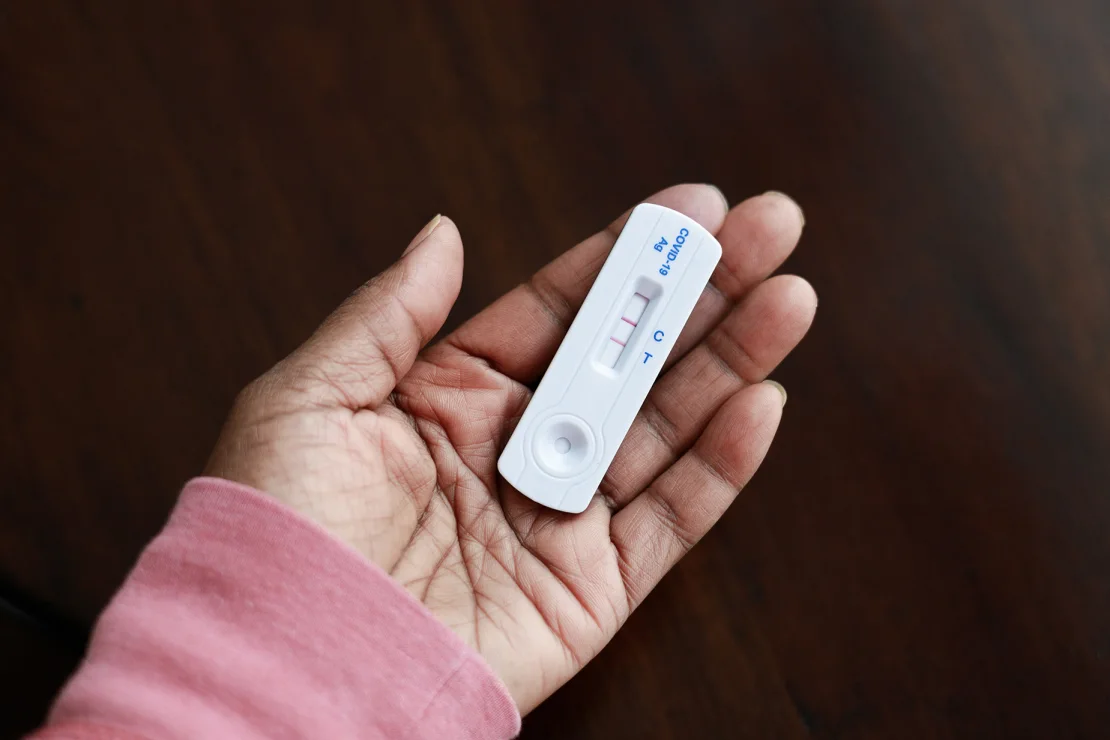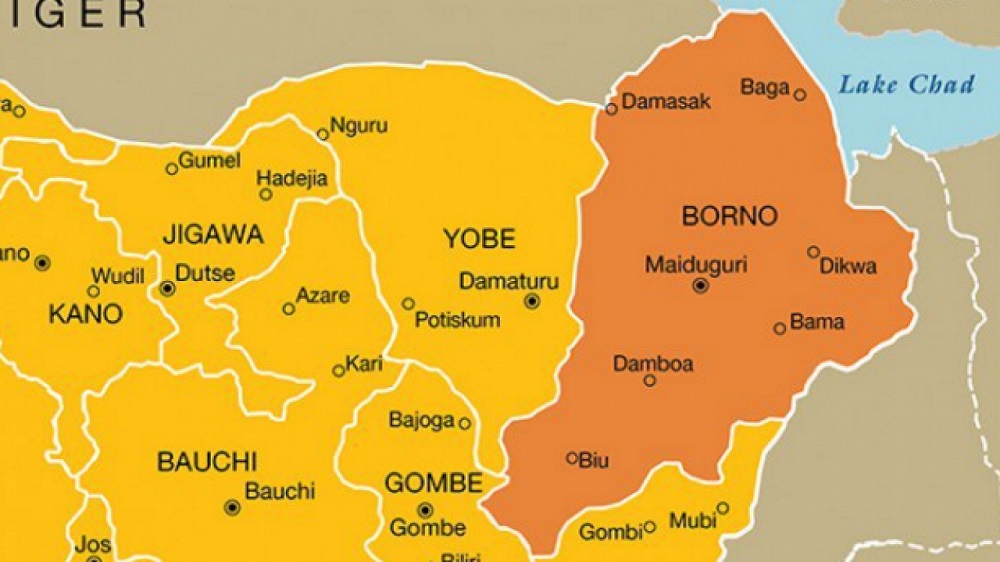News
What you should know about new coronavirus variant? A doctor’s perspective

There is a new coronavirus variant in town. KP.2, a member of the so-called FliRT variants, nicknamed after their mutations, has become the dominant coronavirus strain in the United States, according to the US Centers for Disease Control and Prevention. These FliRT variants have certain mutations in common but are still part of the Omicron family of the coronavirus.
For the period from April 28 to May 11, nearly 30% of new cases were caused by KP.2, up from less than 16% in the two-week period before that.
What should people know about this new variant? What are the symptoms of infection? Do vaccines still work against the new strain? Is a home test still reliable? How long should people isolate if they contract KP.2? Who should take antiviral treatments if they contract this type of Covid-19? And what is the guidance for immunocompromised individuals — should they start masking again?
To guide us through these questions, I spoke with CNN wellness expert Dr. Leana Wen. Wen is an emergency physician and clinical associate professor at the George Washington University. She previously served as Baltimore’s health commissioner.
Home tests will likely still detect KP.2, the new coronavirus variant. Grace Cary/Moment RF/Getty Images
CNN: What should people know about this new variant, KP.2?
Dr. Leana Wen: Since the start of Covid-19, we have been discussing new variants. The original strain of the virus was displaced by the Alpha variant. Then we had Beta, then Delta and then Omicron.
KP.2 is part of the Omicron family. It appears to be displacing JN.1 and similar subvariants, which previously were the dominant variants in the United States.
Whenever there is a new variant, there are three key questions to ask: Is it more contagious? Does it cause more severe disease? And do existing vaccines and treatments work on it?
One reason a new strain displaces the previously dominant ones is that it is as contagious or more so. That means KP.2 could spread very easily, which is something we have seen throughout Covid-19: that the coronavirus is extremely contagious and thus difficult to avoid.
The good news is that KP.2 does not appear to cause more severe disease. Indeed, hospitalizations associated with Covid-19 are at record lows. And there is no reason to believe that existing vaccines and treatments would stop working against it.
CNN: What are the symptoms of infection with KP.2?
Wen: Most people who contract the coronavirus will never know what variant is causing their symptoms. Symptoms of Covid-19 infection include runny nose, sore throat, headache, fevers, cough and body aches. Some people may experience more severe symptoms such as shortness of breath. Covid-19 could also exacerbate underlying conditions such as heart failure.
None of these symptoms are specific to KP.2, which so far has not been reported to be associated with unique symptoms that distinguish it from other coronavirus infections. It’s important to remember that in many individuals, Covid-19 symptoms may be difficult to differentiate from other viral infections, such as the flu or common cold.
News
IGP Launches Safe School Squad In Bauchi

The Inspector General of Police, Kayode Egbetokun, on Thursday, launched a new police-led school protection squad under the Safe School Initiative.
Egbetokun said the unit is part of the national strategy to fortify educational institutions against rising security threats.
The Commissioner of Police in charge of the Schools Protection Squad, Abayomi Shogunle, performed the unveiling on behalf of the IGP and stressed the urgent need for coordinated security measures to safeguard students, staff, and school infrastructure across the country.
Shogunle, who spoke at a stakeholders’ forum on school security, said Nigeria has increasingly battled threats such as kidnapping, homicide, and the destruction of school property.
He explained that these challenges have forced many schools to shut down, thereby worsening the problem of out-of-school children and affecting surrounding communities.
He cited the 2021 National Policy on Safety, Security, and Violence-Free Schools, revealing that “more than 600 teachers were killed in attacks, while more than 19,000 were displaced between 2012 and 2016”.
Shogunle said, “Today’s event, Strengthening Security Resilience and Integration of Host Communities, aligns with the national plan on financing safe schools in Nigeria.
“The plan has a national investment response aimed at protecting schools, learners, teachers and non-teaching staff from attacks in all parts of Nigeria and was designed to achieve measurable outcomes such as reducing the number of out-of-school children and improving Nigeria’s rating in the human capital index in the long run.”
Bauchi State Police Commissioner Sani-Omolori Aliyu also addressed participants at the forum. He confirmed that Nigeria has recorded a disturbing increase in kidnappings, banditry, and attacks targeting students and school staff.
He said these incidents have disrupted learning and spread fear among parents, pupils, and the broader society.
Aliyu revealed, “It was in response to the development that the Nigerian Police collaborated with the federal and state governments and various stakeholders to develop the safe school programme aimed at creating a safe school environment that allows children to pursue their education, free from the spectre of violence or fear.”
He continued, “The Safe School Program is a comprehensive initiative that involves multiple stakeholders and agencies working in unison to prevent attacks, respond effectively in emergencies, and support communities and schools affected by violence.
“The Safe School Squad will be guided by a comprehensive policy framework that delineates its mandate, functions, and operational protocols.”
Aliyu noted that the unit would collaborate with schools, local communities, and relevant bodies to detect and respond to threats swiftly.
He added that the formation of the squad signifies a major leap in the police force’s dedication to school safety.
“This squad will be rigorously trained and dedicated to tirelessly preventing attacks and effectively addressing emergencies as they arise,” he said.
He emphasised that “The Safe School Program transcends a mere police initiative; it is a collaborative effort necessitating the engagement of all stakeholders. We earnestly encourage parents, educators, students, and the wider community to support this initiative and join hands with us in ensuring that our schools remain sanctuaries for learning.”
News
Viral Video: Aiyedatiwa reenters classroom, educate pupils in Ondo school

A recent viral video has captured Ondo State Governor, Lucky Aiyedatiwa, returning to his roots as a teacher, engaging with students at an unnamed school.
The video, which was shared on the Governor’s official Facebook page, shows him writing the word “Drugs” on the board and interacting with the pupils during a lesson.
The Governor encouraged the students to name three forms of drugs, prompting active participation from the class.
The video, which quickly gained traction online, was accompanied by the caption, “Once a teacher, always a teacher.” This gesture comes shortly after the Governor’s approval in March 2025 for the recruitment of 1,100 primary school teachers across all 18 local government areas of Ondo State, part of a broader initiative to improve the state’s education system.
Governor Aiyedatiwa has been vocal about his commitment to educational reform. In his message accompanying the video, he highlighted recent efforts to enhance education in the state, including the distribution of textbooks, Android tablets, and sports equipment to public schools. “This initiative, funded through the 2023/2024 UBEC/SUBEB intervention, underscores our unwavering commitment to quality education for every child, regardless of background,” the Governor said.
Further updates on the state’s educational progress included the construction and rehabilitation of classrooms in over 100 schools, the distribution of more than 75,000 textbooks and digital learning resources, and the recruitment and training of over 2,100 new teachers. Additionally, Aiyedatiwa emphasized his administration’s support for extracurricular activities, such as sports, as an essential part of students’ development.
Governor Aiyedatiwa’s return to the classroom serves as a reminder of his dedication to education and the future of Ondo State’s children. As part of his continued efforts to advance education, he said, “With every book, tablet, and sports kit, we are investing in the leaders of tomorrow.”
Watch video below: https://web.facebook.com/reel/563785076763901
News
Four children injured, one loses hand in Borno IED explosion

An Improvised Explosive Device (IED) detonated in Mafa Local Government Area of Borno State, injuring five children, one of whom suffered the traumatic loss of a hand.
The incident occurred on Thursday, May 8, 2025, around 2:25pm near a culvert along the access road leading to a construction site at the New Mafa Central Mosque.
According to preliminary findings, the children accidentally triggered the hidden IED, which had been concealed in block holes at the site.
The victims, identified as Abdullahi Umar, Musa Mele, Fatima Abatcha, Abba Kawu Muhammed, and Khalid Alhaji Bukar, all residents of Mafa town, sustained varying degrees of injuries from the blast.
A coordinated emergency response was launched by the Explosive Ordnance Disposal-Chemical, Biological, Radiological, and Nuclear (EOD-CBRN) Unit, officers from the Mafa Police Division, and members of the Civilian Joint Task Force (CJTF).
The area was secured, and a thorough search for secondary devices was conducted. Fragments of the IED, crafted using tin containers, were recovered and safely neutralized.
Four of the injured children were transferred to the University of Maiduguri Teaching Hospital (UMTH) for advanced medical care, while the fifth, who sustained minor injuries, was treated and discharged from Mafa General Hospital.
In the aftermath, the EOD-CBRN team launched an Explosive Ordnance Risk Education (EORE) campaign to sensitize children and residents in Mafa on the dangers of unexploded devices, an ongoing threat in communities still recovering from years of insurgency.
-

 News20 hours ago
News20 hours agoJust in: Popular Yoruba traditional ruler joins his ancestors
-

 News20 hours ago
News20 hours agoJust in: Nigeria is still owing us N190bn- IMF insists
-

 News24 hours ago
News24 hours agoExperts say helicopter firm may face criminal charges over Herbert Wigwe’s death
-

 Politics24 hours ago
Politics24 hours agoAwolowo’s grand-daughter resigns as LP executive committee member
-

 News20 hours ago
News20 hours agoJust In: JAMB releases 2025 UTME results, withholds 39,834 over misconduct
-

 News23 hours ago
News23 hours agoBenue on fire as gunmen kill APC leader, District Head on their farms
-

 Opinion15 hours ago
Opinion15 hours agoCELEBRATING “BRO EHIGIE” AT 70
-

 News5 hours ago
News5 hours agoTInubu admits taking tough decisions to enable Nigeria grow





